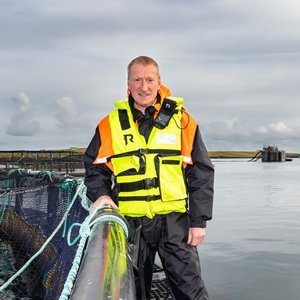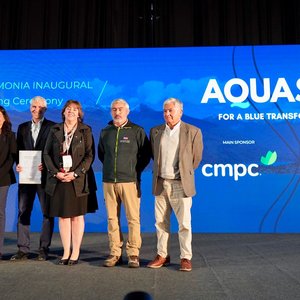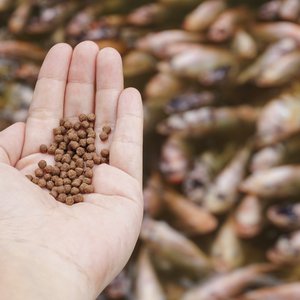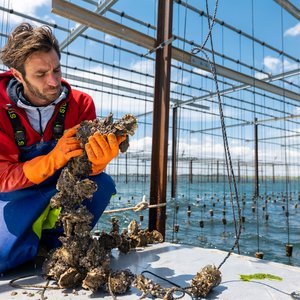After the Thai fishing boat slavery scandal, more people are paying attention to ethics in the seafood industry than ever before. Retailers need a new approach, The Guardian newspaper reported, prompting a response from IFFO\'s Director General, Andrew Mallison
IFFO’s letter to the Editor of The Guardian
Taking a holistic approach to ensure better fishery management
In response to ‘Why independent fishers are the key to seafood sustainability’ by Cristina Rumbaitis del Rio and Sissel Waage, published Monday 1 September 2014.
Dear Sir/Madam,
The article above that appeared on theguardian.com website raised a number of important questions but overlooked some key requirements and obstacles to achieving the desired outcomes.
Few would disagree that the recent reports of labour and human rights abuses in some parts of the fishing industry are totally unacceptable, or that there is an urgent need to achieve healthy oceans and ecosystems. The article called on the private sector to continue their efforts to achieve these goals and there are many examples of progress including, within our membership, independent certification of over 40% of the global production of fishmeal and fish oil as being from responsibly managed sources, traceable and safe.
It could also be argued that the low hanging fruit has been picked, leaving the more challenging sectors which include, as the article mentions, small scale and independent fishers. However, the difficulties here are not just the costs of certification but often the lack of data on which to base certification decisions. Developing world jurisdictions often lack the resource to monitor and record volume and species of fish landed, numbers of vessels or gear types, all of which are needed to estimate the sustainable yield of a fishery with any level of confidence. The less information that is known, the more precautionary any recommendations will be, to the point where they may be unacceptable.
Government can also take a political rather than a biological view when considering fishery management. Fish don’t vote but awarding quota to catch them can certainly be populist.
Consumers, anecdotally, always prefer the picturesque small boat to the large rusty trawler. Small scale and independent fishers can therefore offer variety and marketing opportunities. However, in the real world, the picturesque small boat may also need refrigeration and fish handling facilities both on board and on landing to deliver a good product. The boundary between small and large vessels can be unclear and sufficient numbers of not-so-small vessels can inadvertently lead to overfishing. There is also a debate about whether the catch should be utilised locally instead of requiring infrastructure and transport to some of the multinational retailers listed in the article. In the perfect world, there is balance between small and large vessel operations as both have their benefits to the fish economy and ecology.
Companies are already seeking to address these difficulties. IFFO offers an Improver Program as part of the independent IFFO Responsible Supply (RS) standard and we are currently working with our members and partners in schemes in South East Asia to raise fishmeal and fish oil production standards towards eventual certification. This includes a requirement to demonstrate responsible fishery management. Other standards, e.g. the Marine Stewardship Council, focus on the fishery itself and fishery improvement programs are in place in several regions. However, there is still a reliance on local government to create a legal framework for good management, to enforce regulation and to collect data essential for harvest control.
The issue of social standards is even more reliant on good regulation and enforcement. The recent reports from Thailand showed how weak regulation of migrant labour in the fishing industry allowed desperate and vulnerable individuals to be exploited far from the protection of the authorities.
While the focus is rightly on requiring social as well as environmental standards, there are many differences in establishing what is acceptable. Environmental impact is relatively objective and science based while social standards are influenced by culture and religion (amongst others), requiring a very different skill set to evaluate. Adding social requirement clauses to the IFFO RS standard is currently under way but even developed world companies can find it difficult to demonstrate compliance with national or international labour standards without expensive in-depth audits. Few get the backing of their local authority to demonstrate they meet local regulations and it is difficult to assess performance in this area.
The private sector should continue their efforts to address these problems but will have a much greater chance of success if the (hopefully) elected representatives in each jurisdiction are also doing their part to deliver the objectives. Buyers should lobby government as well as their suppliers and in turn those governments need to ensure that the resources they control on behalf of their constituents are responsibly managed for the long term.
Yours sincerely,
Andrew Mallison
Director General, IFFO










